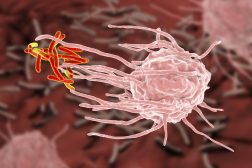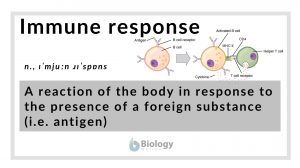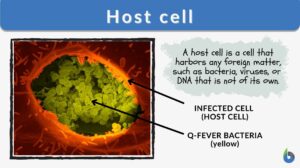Search Results for: foreign
Phagocytosis
Phagocytosis Definition Phagocytosis is a basic physiological cellular process wherein a cell ingests a solid particle... Read More
Biological Cell Defense
Organisms must find a means of defense against antigens such a viruses described on the previous tutorial. If this was not... Read More
Immune system
Definition noun The organ system that is involved in protecting the organism from infection, infestation, and other... Read More
Immune response
Immune Response Definition An immune response is defined as the reaction of the body in response to the presence of a... Read More
Phagolysosome
Definition noun plural: phagolysosomes (cell biology) A cytoplasmic body that forms from the fusion of phagosome and... Read More
Humoral immunity
Let’s get to know where one should place humoral immunity, the topic of today’s discussion!! By the end of the article,... Read More
Plant Cell Defense
Hydrogen Peroxide Plants release hydrogen peroxide in response to the presence of a fungal invasion, which attacks by... Read More
Endocytosis
Endocytosis Definition What is endocytosis in biology? Endocytosis is a cellular process by which a cell internalizes any... Read More
Memory cell
Definition noun, plural: memory cells A long-lived immune cell that has the ability to recognize a foreign particle that it... Read More
Biodiversity
The biological world or life on earth is a marvel that has amazed us since time immemorial. The rich natural diversity of... Read More
Memory T cell
Definition noun, plural: memory T cells A long-lived T cell that bears receptors for an antigen during its encounter with a... Read More
Pseudopodia
A pseudopodium (plural: pseudopodia) refers to the temporary projection of the cytoplasm of a eukaryotic cell. Pseudopodia... Read More
Immunoglobulin
Immunoglobulin Definition An immunoglobulin is a globulin molecule produced by the immune cells, for the body's defense... Read More
Hypersensitivity
Hypersensitivity Definition Hypersensitivity is the exaggerated immune response to protect the human from foreign bodies... Read More
Plasma membrane
Do all cells have a plasma (or cell) membrane? Yes, all cells have a biological membrane that separates the protoplasm from... Read More
Gag reflex
Definition noun, plural: gag reflexes A reflex contraction characterized by retching or gagging when a foreign body comes in... Read More
Protein Variety
The sequence of amino acids determines which type of protein it is. It is synthesized from a DNA strand, each DNA strand... Read More
Movement of Molecules Across Cell Membranes
Diffusion Diffusion is essentially the movement of molecules from a region of higher concentration to a region of lower... Read More
Accretions
Accretion 1. Increase by addition to the periphery of material of the same nature as that already present; e.g., the manner... Read More
Permanent Tattoo Means Permanent Immune Action Of Macrophages
Have you ever wondered why a permanent tattoo seemed to last forever? A simple assumption would be is that the ink could... Read More
Agglutinin
Definition noun, plural: agglutinins Any substance, usually of biological origin, that causes agglutination or clumping... Read More
How Celiac Disease Affects The Digestive System
Celiac disease is a condition that affects the digestive systems of many individuals all over the world, and in this... Read More
Exogenous antigen
Definition noun Antigen that enters the body of the organism from the outside, e.g. through inhalation, ingestion, or... Read More
Eponychium
The eponychium is the layer present underneath the proximal nail fold that produces cuticles on the nail.... Read More
Exotic species
Exotic Species Definition What is an exotic species? In biology, an exotic species refers to a plant species or an animal... Read More
Pathobiology of allergy and its most severe form, anaphylaxis
When allergy season looms, some people with serious hypersensitivity to allergens tend to be apprehensive of what may come.... Read More

























